End of Covid payments: Events industry pleads for more support
“Decimated” by the pandemic, the Australian events industry is begging for continued government help as consumers hold back on booking celebrations.
Companies
Don't miss out on the headlines from Companies. Followed categories will be added to My News.
Kate Austin has watched the event industry be “decimated” by the pandemic with businesses haemorrhaging money, yet she said the federal government has failed to provide any targeted support to the once thriving scene.
The mum-of-two started her photo booth business in 2009 from her Brisbane garage with her husband Steve and successfully expanded it across the country.
But since Covid-19 hit the losses for their business, called In the Booth, have run over a million dollars as events have been cancelled and postponed over the last 18 months.
She’s been forced to reschedule hundreds of bookings for everything from weddings to conferences — some multiple times.
One couple recently emailed to rescheduled their November wedding in QLD for the fourth time. They cited concerns about interstate guests from NSW or Victoria having to quarantine as well as worries that restrictions would impact on dancing or result in them having to reduce guest list numbers.
It’s a common conversation that Ms Austin is having to deal with every day.
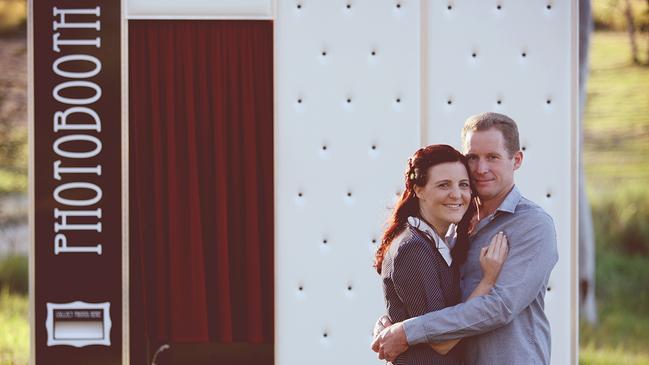
The 40-year-old describes the event industry as being in a “permanent holding pattern” and “utterly inoperable” with snap lockdowns, changing restrictions and uncertainty plaguing people’s confidence to book.
Events were “basically cut back to nothing” for Ms Austin and her 18 franchisees in 2020 but she was expecting to bounce back this year.
Yet NSW and Victoria have been plunged into lockdowns that have dragged on for months. Then there’s the issue of how reopening will be handled with “state premiers bickering on how they are going to manage the virus moving forward, which for the event industry is impossible to operate in”, Ms Austin added.
“It doesn’t matter if you’re in QLD or WA, which people say have been hardly touched by Covid, the industry has been destroyed. People want family or friends to come from interstate to their wedding or event but there’s no certainty,” she told news.com.au.
“The restrictions have an impact as well. People do not want to consider having their daughter’s wedding where everyone is required to be masked in photos and they don’t want have an event where they can’t dance – all those restrictions cause people to postpone.
“There are celebrations that people are desperate to have and people want to get back to living their lives but there needs to be the confidence for them to book and for postponed events to be held.”
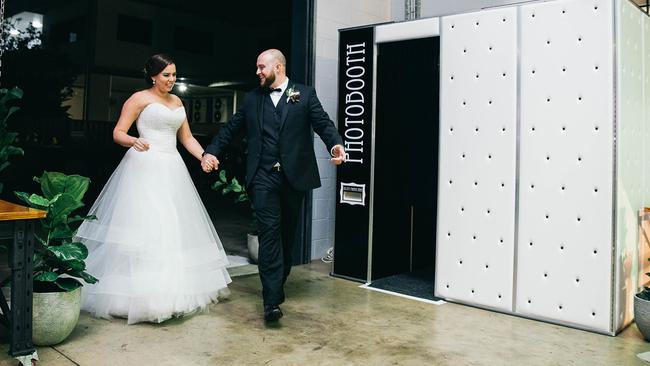
Events restricted but footy final going ahead
Ms Austin was gearing up for more postponements as parts of Queensland were plunged into tighter restrictions, including Brisbane, the Gold Coast, Moreton Bay, Logan, Townsville and Palm Island from 4pm on Thursday for the next two weeks.
That means a cap of 100 attendees at weddings and funeral caps of 100, a one person per four square metres cap in restaurant and cafes, and a requirement for those at hospitality venues to remain seated while eating and drinking.
“It’s been another very hard day. Cancellations for events we have this weekend of over 100 people, or under due to restrictions people don’t want to celebrate under, but (almost) 40,000 at the football,” she said. “It’s really becoming the joke with no punch line.”
Currently, no one has confidence that their event will go ahead, Ms Austin said tearily.
“We have no new income, client admin has gone through the roof, we’ve had to let staff go and it feels like we are in endless purgatory. The word roadmap is quite insulting – there is no roadmap as people don’t understand how it will work, particularly with vaccine passports and square metre rules,” she said.
“We have been doing this for 18 months. We went through Covid safe plans, followed every government requirement and its all been for nothing as we are here and still can’t work. There is zero confidence in our market.”
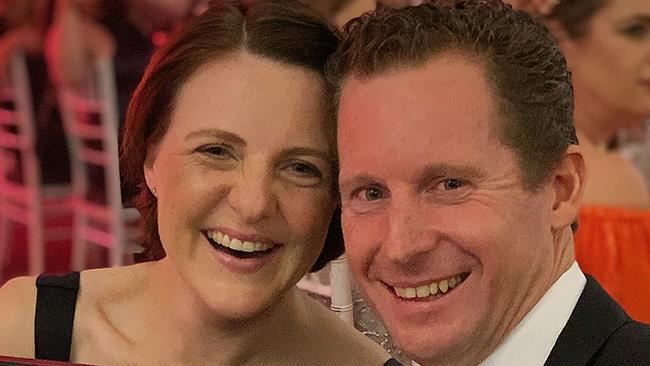
Some restrictions in locked down Sydney are set to ease on October 11 and then a fortnight later, while in Melbourne they will be relaxed on October 26 and November 5, to coincide with when the states hit 70 and 80 per cent double dosed.
The problem is, business support is being cut off almost immediately, leaving the events industry in tatters.
Earlier this week, the federal government announced an end to the weekly $750 Covid-19 disaster payment, which has been keeping stood-down workers with enough money to live off.
The weekly payments will slowly be reduced until two weeks after the ACT, NSW and Victoria hit 80 per cent vaccinated, where it will stop altogether.
The federal government has also pulled support from the JobSaver program which provided businesses with 40 per cent of their wages so they could keep staff employed.
NSW’s state government will fund part of it, but this will eventually “cease” in late November.
That’s all well and good for some industries who can fling open their doors the moment restrictions lift, but for the events industry, it’s not so easy.
Doltone House executive chairman Paul Signorelli, who runs six function centres across NSW, told news.com.au the constant closures “were almost like a guillotine chopping us”.
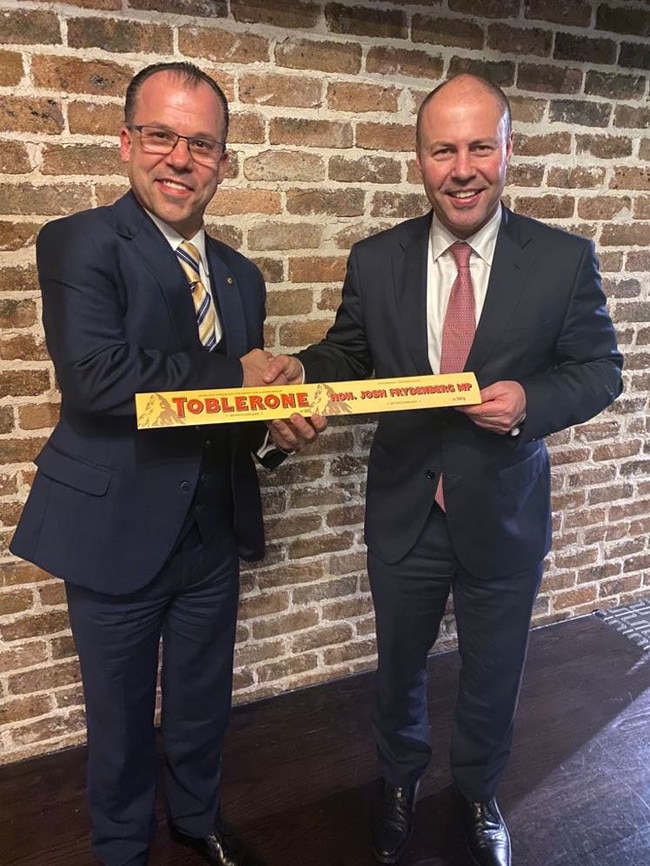
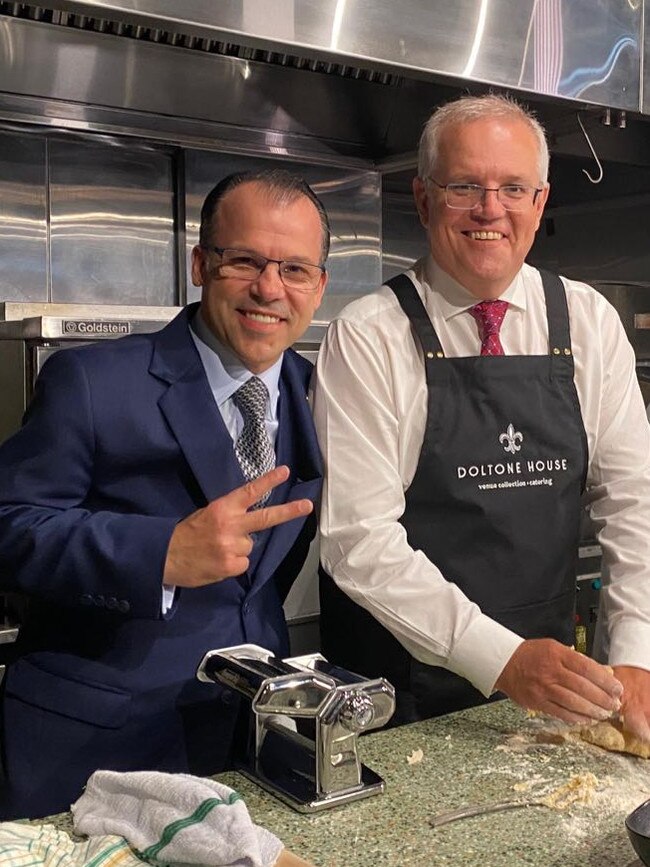
When it came to government support suddenly drying up once the state hits its vaccinated milestone, Mr Signorelli was not optimistic. He called on Mr Frydenberg, who he has met several times, to do more.
“The science around our business is lead time,” he explained.
“For someone to book a function, you’re talking about three to eight months in advance.
“If you think of our business as an aeroplane, our runway is three to eight months.
“We don’t just take off vertically. It’s a runway.”
Bookings have been constantly cancelled or postponed.
Christmas is usually his busiest time of year but he said he was expecting 60 per cent less bookings for corporate Christmas parties than normal.
“Sixty-six per cent, a lot of our clients, have postponed. Thirty per cent will retain their events in November, December, but the majority won’t,” he added.
With consumer confidence so low, and without government help, Mr Signorelli doesn’t know how he will keep his 600 staff employed — estimating 90 per cent of them will have to be stood down.
“Some industries will take a longer time to recover,” he added. “Unlike retail, we don’t open the door as a drive through.”
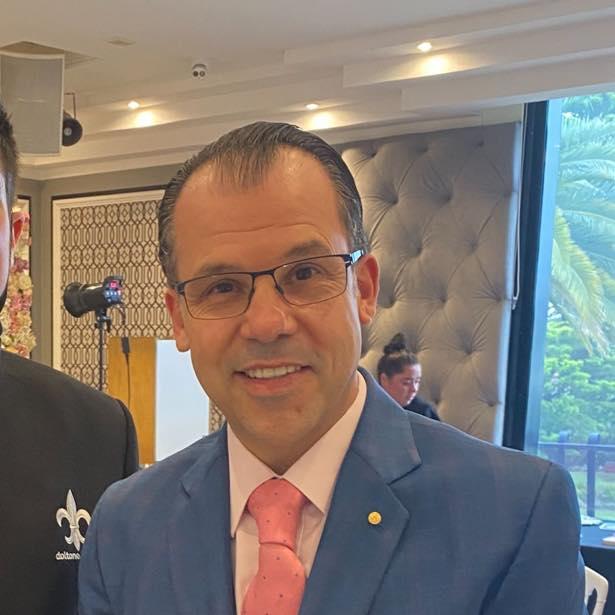
An Opera House employee who preferred to stay anonymous said most workers were staring down the barrel of significantly reduced hours as the iconic Sydney landmark scrambled to survive with the sudden changes.
The historic theatre hasn’t just been affected by a lack of demand for events. It’s also feeling the squeeze of Australia’s reduced tourism industry.
“The tour guides, front of house, the ushers, have been absolutely smashed (by the lockdowns),” the worker told news.com.au, saying they had way less hours than before.
Although “the Opera House makes most of their money through tours, not through shows”, that isn’t the case anymore.
Since Covid-19 hit early last year, the number of tours went from 60 a day to just three, with international tourists out of the picture.
Because the Opera House is run by the government, those workers didn’t even qualify for JobKeeper last year.
“We got screwed over again,” the worker said.
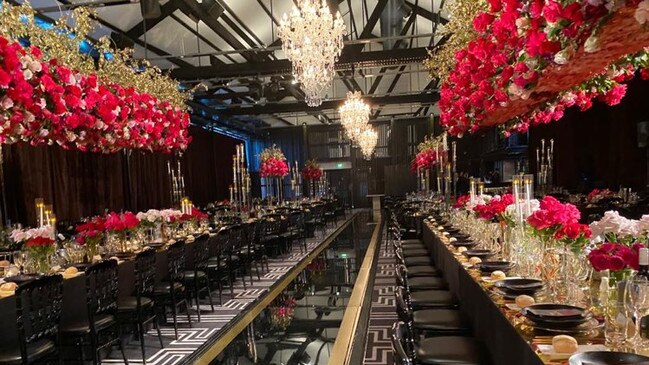
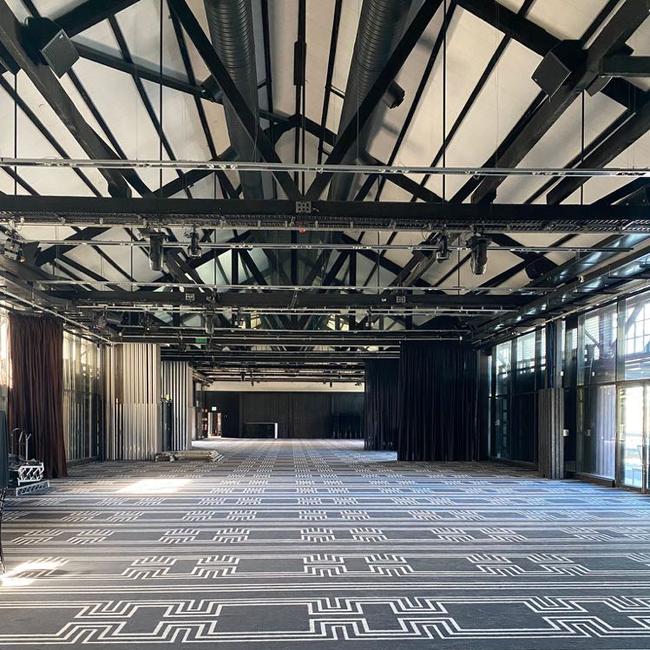
The nature of casual and contracted work in the events industry means that Jay*, who has been in the industry for 40 years, was left with zero support once lockdowns hit.
The Sydney-based contract worker didn’t qualify for JobKeeper last year and he couldn’t get the Covid-19 disaster payments this year.
“I’m getting nothing. There’s no basis for anyone to pay,” Jay told news.com.au.
“It’s a casual job, I only do it whenever there’s any need.”
And of course, in lockdowns, there is no need.
He’s eaten thousands of dollars into his savings and doesn’t predict that his cash flow will go back to normal the instant lockdown ends.
“It’ll never be what it was before. It’ll start to develop very slowly,” Jay added.
“It’s not going to get back to what it was before for a long time.
“Events will be much smaller and much fewer because people don’t have confidence that they’re going to pull it off.”
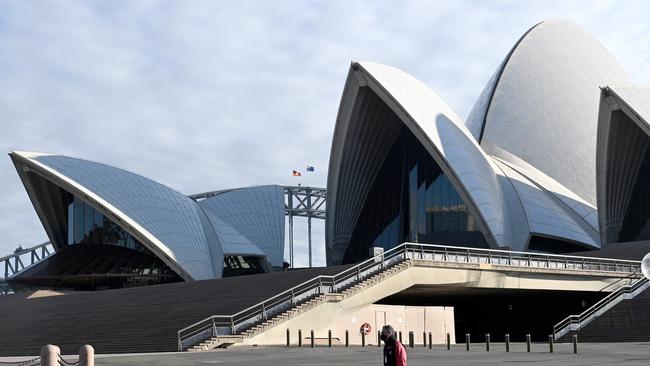
Capacity limits remain in place across both NSW and Victoria, with the one customer per four square metre for indoor venues and two square metres for outdoor seating.
For Melbourne business owner Paul Kasteel, who has run is Asian restaurant Miss Kuku for the last 15 years, it spells disaster.
“I can only have 24 in a venue with a capacity of 260,” he told news.com.au.
On November 5, when his state is predicted to hit 80 per cent, he’ll be allowed a little more but this is now looking shaky with fears lockdown could be extended after a spike in Victorian cases.
“Inside I can have 67, outside 48. If you do the maths it’s basically 44 per cent of my normal capacity, no indication that that’s going to change for summer.”
At full capacity in the summertime, he says he can make up to $50,000 a week in revenue. But he hasn’t seen that money coming in for the last 18 months.
The venue costs $1500 a week and he is still in talks with his landlord to get some rent relief.
The dad-of-two previously explained to news.com.au that every lockdown makes it “harder to rebook people” which is especially difficult for him because most of his customer base is bookings for events like birthdays, corporate parties and farewells.
Mr Kasteel doesn’t even believe there’s much point opening in October for just 24 customers at a time.
With 16 staff members and strict capacity limits, he doubted any one of them would be getting their full hours once the state hit 80 per cent vaccinated.
“It’s like we’re being bled to death,” the 48-year-old said in an earlier article.
“We’re being slowly strangled, we can’t open fully up and can’t make enough money to pay our debts.”
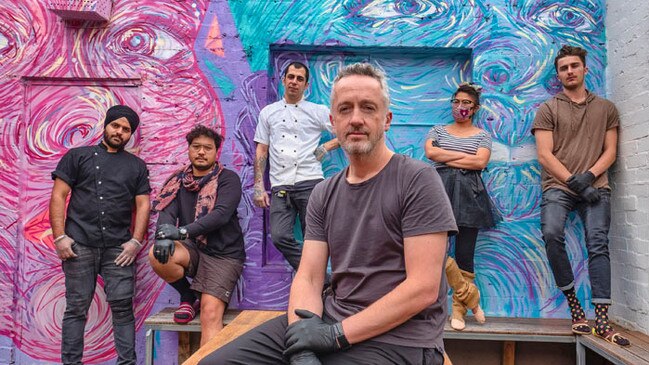
Julia Barnard, managing director of Sydney-based event styling, management and planning company This Space, said most businesses have only been able to retain the experienced employees with the support of the government funding that’s been available.
“The events industry takes on average six months to start to recover after a lockdown period, as this is generally the lead time we find for scalable events,” she warned.
“With little to no income, most businesses do not now have the cash flow to weather a six month delay to the industry returning and in turn are forced to have to stand people down or lay them off.”
The skill level of the industry is so important with Australia pitching themselves to the world as world leaders in staging events, she added.
“Many skilled people have now opted to leave the industry due to the instability and so an experience skills shortage is evident when events do start to return if we cannot retain our employees without ongoing government support,” she explained.
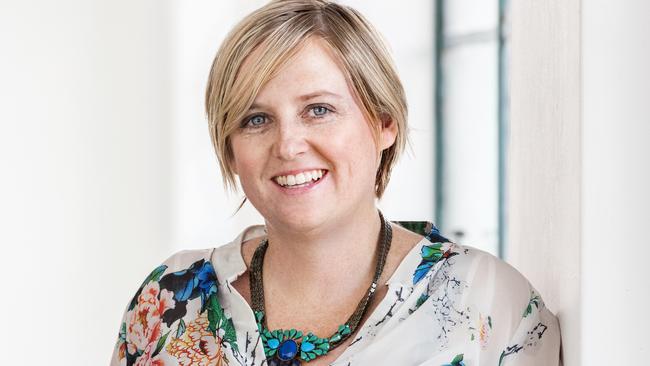
Ms Barnard, who founded This Space 15 years ago, added the industry has been forgotten yet has suffered devastating impacts as it faces little to no ongoing support and understanding of what happens to the industry once lockdowns finish.
“After the first lockdown we started to see our industry recover and were operating at 30 per cent of our usual capacity,” she said.
“However, with the second lockdown in NSW, this was knocked back down to close to zero per cent again whilst still trying to retain employees to ensure we still have the staff when events start to return.”
Ms Austin added that dedicated support packages worth billions had been given to aviation and tourism, but the events industry had been forgotten by the government.
“Events have absolutely nothing targeted to us but we have been decimated,” she said.
“We can’t fund ourselves any longer. We used all our reserves and somehow now we are running on fumes. There is nothing left to keep funding the business and no new money as every time there’s a lockdown and postponements that is taking up dates in the future in 2022 or 2023 that I can’t sell to new clients.
“I would like the government to recognise us as a category just like tourism and aviation worthy of a being targeted and given support.”
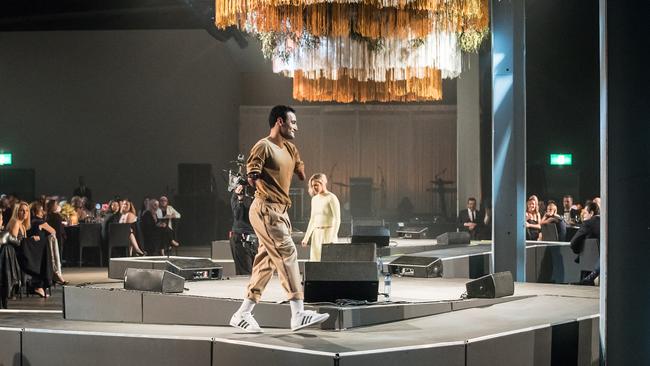
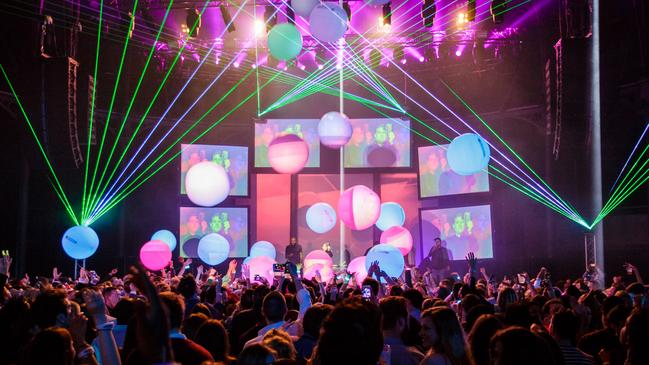
The events industry pumps billions into the Australian economy too.
Just the world of business events – from small board meetings to awards dinners and conferences — is worth $36 billion, according to Tourism Australia.
Then there’s the wedding industry which injects somewhere between $3.6 billion and $9.5 billion into the Australian economy, estimated Deloitte.
Yet the Business Council of Australia (BECA) reported that the Australian economy was set to lose over $35 billion in direct expenditure in 2020 as nearly all business events for 2020 were shut down due to the pandemic.
This equated to a total loss of around 1.1 million event days, McCrindle research found.
On top of this a further $17.2 billion in direct value to the economy was wiped out and more than 92,000 jobs lost, it revealed.
The Business Events Council of Australia (BECA) said it was deeply concerned and disappointed with federal Treasurer’s Josh Frydenberg’s decision to withdraw payments without considering the nature of the events industry.
Geoff Donaghy, BECA deputy chair, said he supported the government’s reopening plan
and vaccination rollout, but it shouldn’t be confused with the ability for the business events industry to trade.
“When restrictions lift, business events cannot simply switch on like other industries. Significant lead time is required to book, plan, and deliver business events, which is why targeted and sustained support for our sector is required into 2022,” he said.
“It will take six to 12 months at least for business events to fully gear up, confirm program content, source sponsors and exhibitors, and market the event to attract delegate registrations.”
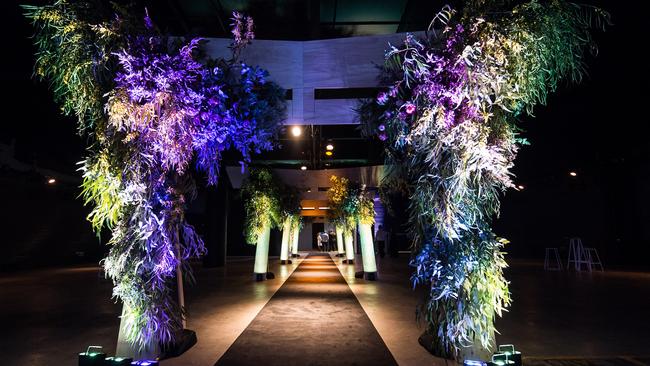
Complicating matters are the inconsistent approaches between the NSW, Victorian and ACT Governments around their reopening roadmaps, which all have different trigger points for reopening, Australian Retailers Association CEO Paul Zahra added.
“Tapering off support payments with different reopening timetables is likely to see an uneven recovery and unfairly punish businesses and workers depending on where they’re located,” he noted.
“It’s frustrating to have the states and territories going in different directions for their reopening’s – it’s been a recurring theme throughout the pandemic and it undermines our business interests. There’s been no consistency in terms of what triggers a lockdown, what defines ‘essential retail’, and we’re seeing this again in their reopening roadmaps.
“The key thing is we need consistency and assurances from government that once businesses are open in line with vaccination targets we will see an end to lockdowns. We have to live with Covid and manage things in an open, safe and responsible way.”
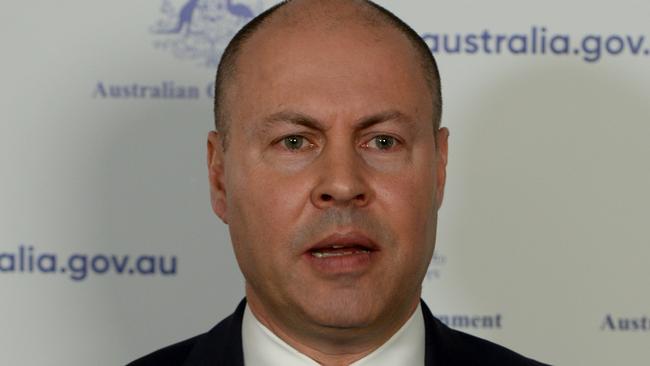
When news.com.au approached the treasurer’s office, an exchange between Mr Frydenberg and a journalist at a press conference on Thursday was supplied.
Mr Frydenberg said at the conference, “Well, as you know, we have taken the decision about our economic support payments transitioning and ending based on the best medical advice and based on the best economic advice.
“So we’ve had extensive discussions with Australia’s Chief Medical Officer before reaching this decision.
“Now, the Doherty modelling has said that there will continue to be cases and, indeed, there will continue tragically to be some deaths, even as vaccination rates increase from 70 to 80 per cent. But that at that time lockdowns become unlikely and in the event that they are put in place they’re very temporary and they’re very targeted.
“And what we announced yesterday with respect to the Covid disaster payment is that there would be a couple of weeks’ transition and then people would be able to access the welfare system after that point in time...
“If it’s not 80 per cent double-dose vaccinations when we bring to an end the Covid disaster payment and the business support payment, then when is it?
“When is it that the government can stop spending one and a half billion dollars a week on these emergency support measures and when is it that people can get their lives back and that the lockdowns can be lifted?”
*Names have been changed
Originally published as End of Covid payments: Events industry pleads for more support




